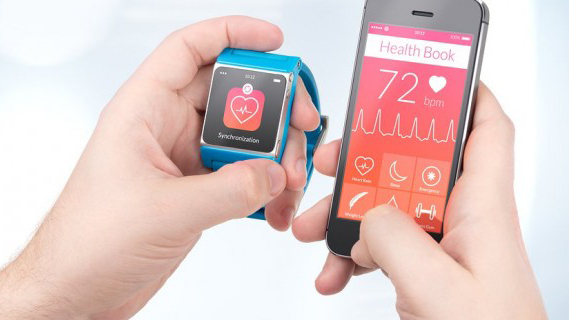Technology advancements have completely transfigured the working models of various industries. From the business enterprises to service industry, tech innovations have stirred up revolutions across industry verticals. The medical and healthcare sector is not far from recognizing and reaping the benefits of latest technologies, which create new possibilities for advanced patient care.
If one is wondering about what these technologies can do for the healthcare sector, a few market stats will clear all doubts. Before turning to them, let’s get knowledgeable about these crucial tech advancements.
Wearable Technology & Mobility in Healthcare Industry
The central protagonists

When it comes to stirring up revolutions in the healthcare industry, none other than mobility and wearable technology emerge as the greatest discoveries. From tracking patients’ health in real-time to sharing crucial medical information, there’s nothing that mobility can’t help the user achieve.
According to reliable market reports, 2017 will witness a dramatic surge in the production and sale of mobile devices in the healthcare industry. From critical collaborations to effective patient care, mobility solutions play the key role in revolutionizing numerous processes and functions. Some of the essential benefits of mobility solutions include:
Patient care: Whether it’s tracking patients’ medical history or staying updated about checkups and treatment, mobility software solutions make every task simpler than ever! In terms of patient compliance, wearable technology has the potential to significantly improve patient care, and this will only materialize if patients are compliant to align themselves to protocol.
Backend support: Record maintenance, appointment scheduling, and billing hadn’t been easier. Mobility solutions have made it possible.
With these benefits along with 24×7 patient-monitoring, mobility seems to unlock numerous opportunities and possibilities for the healthcare sector. On that note, it’s high time to see what wearable technology can do for the medical sectors.
Healthcare industry and wearables
Although wearable technology hasn’t yet gained strong grounds, it is advancing quite steadily. As the wearable technology allows remote patient-care, hospital costs, and other related expenses reduce to a great extent; healthcare facilities are adopting this technology right away.
Let’s take a look at how wearable transforms operations and processes in the healthcare sectors.
Statistics speak
Crucial statistical insights reveal how wearable devices such as Smartwatch and fitness bands increase life expectancy. The latest market research report “Wearable Technology Market” published by Scalar Market Research, suggests that the wearable technology market is worth $28.89 billion in 2016 and expected to reach $71.23 billion by 2021, growing at a CAGR of 18.9% from 2016 to 2021.
These stats offer crystal clear insights into the real picture.
Embracing IOT: Wearable technology will popularize Internet of Things and help you embrace the concept for future developments.
Big Data transformation: With wearable devices, you can transform big data into crucial information capable of delivering actionable insights.
Human-centered Designs: The wearable technology will popularize simple functioning and operations with human-centered designs.
Bringing change with innovation
While those are some of the crucial highlights of Wearable devices and technologies, users can reap more benefits. With the help of this particular technology, users will have the opportunity to track surgical recoveries, time taken for returning to work and manage catastrophe claims.
‘Glocalization’ of medical needs: Accelerating wearable strategies:
The globalization of the healthcare solutions has come a long way to address lack of innovative computing of patient data. The key aspects like patient health, affordability of treatment, access to technology and diversity can now be customized according to global concepts to meet the local needs. This is primarily because a singular solution will not meet all needs, this is where patient compliance comes in. Embracing the technology in India might take a little more time to become mainstream due to obvious restrictions of access to technology. That being said, it’s quite evident that the future will bring great news for mobility and wearable!








